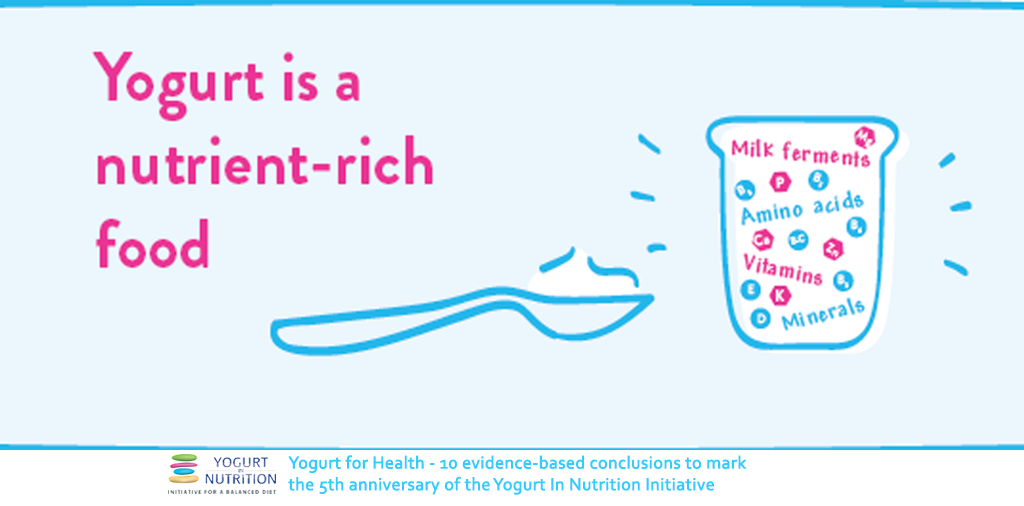“Yogurt is a nutrient-rich food” is one is one of the 10 evidence-based conclusions made by the YINI board about the health effects of yogurt… learn more below
Yogurt’s contribution to sugar intake is relatively low
The World Health Organization recommends limiting the consumption of non-milk extrinsic sugars – which include those added to food by manufacturers or by consumers – to a maximum of 10% energy intake. However, many people in Western societies, especially children, are exceeding this threshold.
Concerns that sweetened yogurt is contributing to these excess sugar intakes are not supported by the scientific data.
While more than 50% of total sugars and 66% of added sugars in children’s diets come from sweet products such as cakes, sweets and sugary drinks, yogurt accounts for only 1–8% of total sugars and 4–9% of added sugar to children’s diets in Europe.
In the USA, a NHANES analysis found that flavoured yogurt contributes about 1% of added sugars to the diets of adults. This compared with 28.1% from soft drinks. As sugar may make a food more palatable for children, there is an argument that sweetness (consumed within recommended calorie amounts) may promote consumption of a nutrient-rich food. The American Academy of Pediatrics comments that, while added sugars do not provide nutritional benefits, sugars themselves are not necessarily harmful. It says, ‘Used along with nutrient-rich foods and beverages, sugar can be a powerful tool to increase the quality of a child’s diet.’
- To go further, learn how yogurt is kid-friendly in more ways than one.
References:
-
World Health Organization: Guideline: Sugars intake for adults and children. 2015
-
Azaïs-Braesco V et al. A review of total and added sugar intakes and dietary sources in Europe. Nutr J 2017;16:6.
-
National Dairy Council. NHANES 2007-2010 food and beverage sources of added sugars in the diets of children (2-18 years) and adults (19+ years).
-
American Academy of Pediatrics, Council on School Health, Committee on Nutrition. Snacks, sweetened beverages, added sugars, and schools. Pediatrics 2015;135:575–83.



